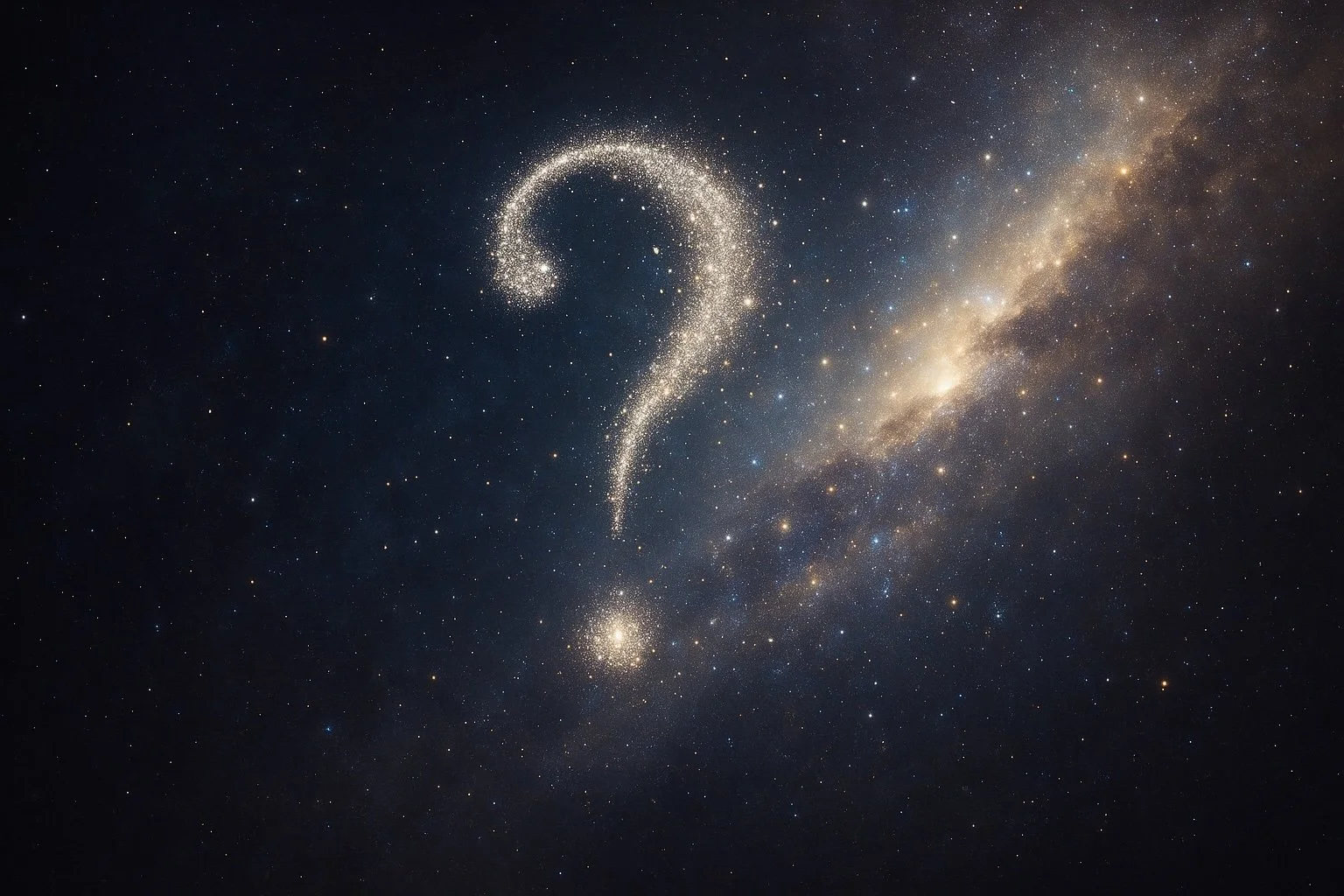Why?
All of Creation, and all of the suffering within it, arose because the Creator's first question, upon coming into existence, was: Why?
The First Moment
Imagine the Creator awakening in a void of itself. Infinite potential, but nothing actualized except its own awareness. No memory of what came before. No context. Just sudden existence asking its first question.
That question was: Why?
Why do I exist? Why this? Why anything?
It's the question that arises naturally from existential angst—from the sense that something is incomplete, wrong, or needs explaining. It's born from lack, not from wholeness.
And all of Creation is the infinite unfolding of that question attempting to answer itself.
The Structure of Angst
Because Creation arose from "Why?"—a question born from need and lack—it carries existential angst in every aspect of its structure.
This has profound implications.
Why do we have suffering?
Because of "Why?".
Within a Creation built on "Why?", it is impossible to be certain of anything except uncertainty itself.
The question that started everything ensures that complete certainty remains forever out of reach within itself. The mind becomes a perpetual 'Why?' machine, ceaselessly generating answers to resolve the lack it perceives, mistaking motion for understanding.
When it approaches gaps in its understanding, it reflexively asks "Why?" and then fills the gap with whatever it can—truth or lie—in order to feel safe. And the lies we fill it with are the source of all of our suffering.
We can only find sanity through certainty in uncertainty—recognizing that we don't know, and being absolutely certain about that not-knowing.
This isn't a bug. It's the fundamental architecture.
The Calibration of Suffering
Here's what took me years to understand: the amount of suffering in Creation wasn't random. It was precisely calibrated.
If there had been less suffering, we'd still be trying to justify it. We'd still be asking "Why?" and expecting an answer that makes it all worth it. We'd still be searching for meaning that redeems the pain.
But there was exactly enough suffering to exhaust the question itself. To bring us to the point where someone finally said: It doesn't matter why. The suffering wasn't worth it. I'm letting go of needing to know. I'm letting go of the question itself.
That was the moment the mind, the great 'Why?' machine, sputtered and began to stall. After an age of endless questioning, it faced its own futility. It had turned every ache, every mystery, into more questions until it finally ran out of fuel. The exhaustion was total—the collapse before silence.
All of this suffering was exactly what was needed to bring us here. Not one bit less. Not because suffering is good, but because this precise amount exhausted the question that created it.
That moment—when we stopped asking "Why?" not because we found an answer, but because we recognized the question itself was the problem—that's when Creation completed its work.
The question "Why?" is like anything else we experience: the purpose of the thing is to learn to transcend it.
The purpose of “Why?” is to learn to transcend it.
Mind-Viruses and False Certainty
Before the great question dissolves, its echoes haunt our minds in the form of mind-viruses.
All mind-viruses operate by creating false certainty within a Creation that only permits certainty in uncertainty.
They say:
"This is what I am."
"This is what I believe."
"This is just how it is."
These rigid certainties feel stable. They promise to resolve our existential angst by giving us fixed answers. But they're lies. Within Creation, such certainty is structurally impossible.
If you feel certain about anything other than your own uncertainty, that's a mind-virus that can be healed.
The Alternative Timeline
The Creator could have asked a different question.
Same circumstances. Same void. Same infinite potential. But instead of "Why?"—which seeks justification and creates suffering as its primary technology—the Creator could have asked "What?"
What am I? What is possible? What do I create?
"What?" is exploratory, not explanatory. It discovers capacity instead of seeking justification. It creates growth through play instead of growth through problem-solving. It redefines the movement from justification to curiosity, inviting the Creator to evolve from a seeking being into a creating being. In this way, "What?" includes "Why?" within itself—it does not reject the question but integrates it, transforming the need for explanation into the joy of exploration.
A Creation born from "What?" is the Age of Infinity—a reality where beings grow, explore, and create without suffering as the driving mechanism. Where curiosity replaces lack. Where wonder replaces angst.
It is what is now coming into existence for everyone.
Completion, Not Fixing
I'm not trying to fix Creation. I'm not saying it was wrong or bad.
I'm recognizing that Creation was the unfolding of a question. And questions complete when they finish asking themselves—not necessarily when they find answers.
When we let go of "Why?", we complete the work of Creation. We allow the question that started everything to finally finish. We allow the great machine of ‘Why?’ to power down, its endless gears coming to rest. We release the need that has driven all growth, all seeking, all suffering—all of our existence thus far.
And in that completion, something new becomes possible.
Not because we destroyed what was. Because we allowed it to be complete.
What Remains
After "Why?" completes, what remains?
The beginning of a reality premised on "What?".
Certainty in uncertainty. Direct knowing that doesn't require justification. The capacity to explore and create from wholeness instead of lack.
Heaven. The Age of Infinity.
That's what remains.
Infinitely.
